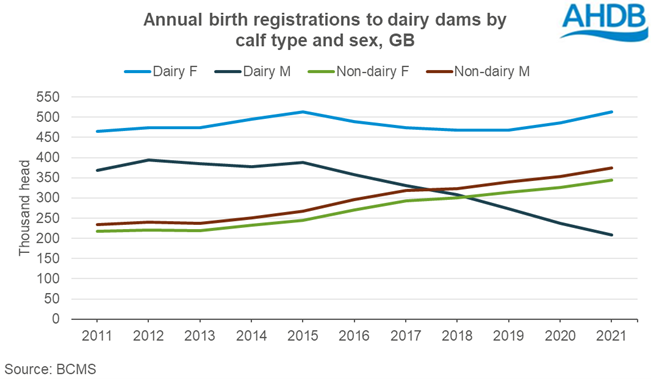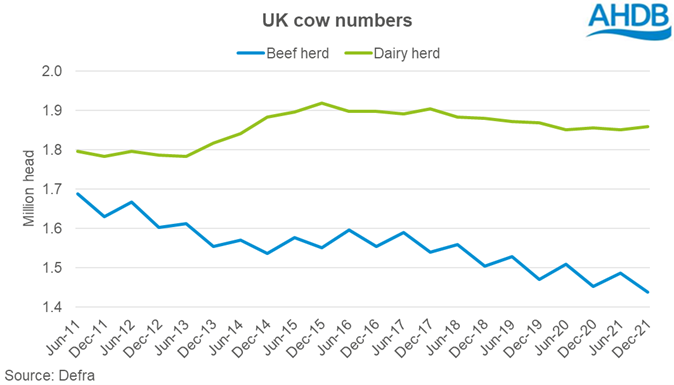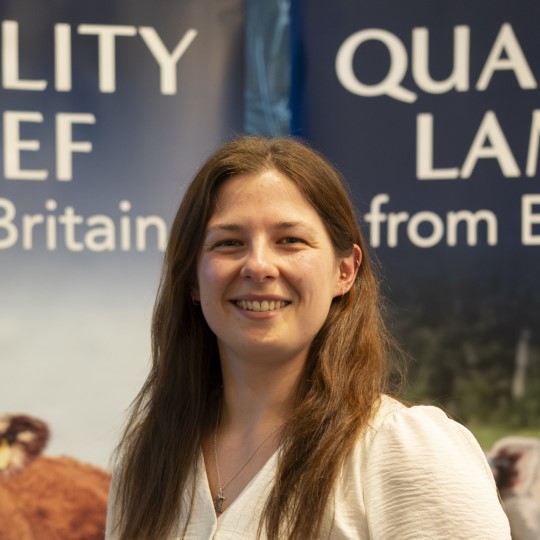How have calf registrations from the GB dairy herd changed over time?
Friday, 18 November 2022
The composition of calves being produced from the GB dairy herd has changed substantially over the years, according to registration data from the British Cattle Movement Service (BCMS). We explore these figures in more detail, for GB Calf Week.
In 2021, 1.44 million calves were registered to dairy dams, according to BCMS figures. Out of this, 36% were “dairy females”, 14% were “dairy males”, with the remainder (50%) being “non-dairy” males and females (beef X dairy calves).
This picture has changed over the last decade. Since 2011, the number of dairy males and “non-dairy” animals being registered from the dairy herd have diverged significantly. Dairy male registrations have fallen by 44%, while the number of non-dairy animal registrations have risen by 59%. There has also been a small rise in the number of dairy female registrations (+10%). In total, birth registrations to dairy dams in GB have risen by 12% (155,000 head) between 2011 and 2021.

Over the same period, the dairy herd has grown slightly. Defra data shows that the UK herd expanded by 4% (76,000 head) between December 2011 and 2021. The herd grew relatively rapidly from 2013, peaking at just over 1.9 million head in December 2015. However, since then, numbers have been on a slight decline. In December 2021, the herd stood at 1.86 million, 3% lower than six years previous.

The change in calf registrations over time is reflective of advancements in breeding strategies and technology within the industry. AHDB survey data shows that the use of sexed semen has increased significantly in the last decade, making up 70.5% of all dairy semen sales in the 12 months to March 2022. In 2012, this was just 12.3%. Beef semen use has also gained popularity among dairy producers, with sales to the dairy herd making up 48% of total beef semen sales over the same period.

Sign up to receive the latest information from AHDB.
While AHDB seeks to ensure that the information contained on this webpage is accurate at the time of publication, no warranty is given in respect of the information and data provided. You are responsible for how you use the information. To the maximum extent permitted by law, AHDB accepts no liability for loss, damage or injury howsoever caused or suffered (including that caused by negligence) directly or indirectly in relation to the information or data provided in this publication.
All intellectual property rights in the information and data on this webpage belong to or are licensed by AHDB. You are authorised to use such information for your internal business purposes only and you must not provide this information to any other third parties, including further publication of the information, or for commercial gain in any way whatsoever without the prior written permission of AHDB for each third party disclosure, publication or commercial arrangement. For more information, please see our Terms of Use and Privacy Notice or contact the Director of Corporate Affairs at info@ahdb.org.uk © Agriculture and Horticulture Development Board. All rights reserved.

